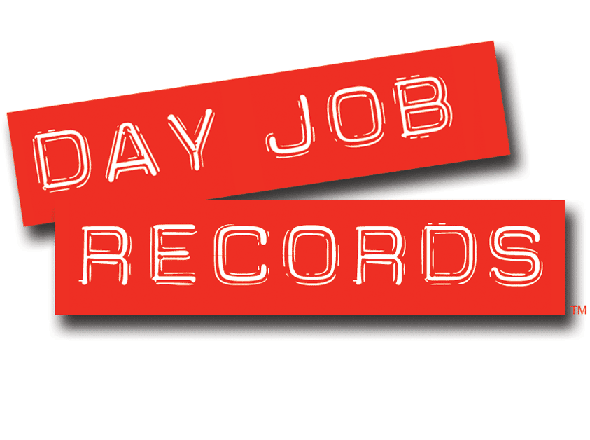Day Job Records: A platform label for up-and-coming bands
Blog by Louise Dodgson under Record Labels

Stuart Anderson is a busy man. Lead singer of new indie band Leisurama, he is also MD of Day Job Records and holds a managerial position in a PR company. He talks to us about the challenges of releasing his music through his own label.
I met with Stuart at the Big Chill bar in Brick Lane for a quick lunch and to learn more about his different projects.
So why start a label when you already have a band? I don’t know if it is something I would personally recommend to everybody but in Stuart’s case it seems to be the natural progression of his career.
After unsuccessfully talking to a few labels, the increasing frustration towards an industry more interested in MySpace plays or Facebook friends than listening to new music and the many encounters with people on the industry’s fringe making false promises, the thought of self-releasing his music seemed to be the right decision.
He pushed this idea further as he is doing so through his own label, Day Job Records: “I read an article in the NME about the rise of "bedroom" labels and how the indie label is back. It made me think of the days when labels were all about the music and you used to buy something because of the label it was on, without even hearing it!”
Leisurama, his band, are a guitar based four-piece who bring a different take on Indie Rock in the guise of ‘Fuzz‘n’Jangle’. Two of their songs are already available to download for free from their website and they have just released their debut single ‘The Lou Lou Song’. He sees his band as the ‘experiment’ band for the label.
Day Job Records’ first release was for Leisurama; “that way I can make all my mistakes with my own band and be fully prepared for the next releases!” From there on, his plan is to release at least a single a month from different bands.
A very good book ‘Music Business Made Simple - Start An Independent Record Label’ by American attorney J.S. Rudsenske also enormously helped channel his ideas. “Chapter by chapter it goes over everything, it’s like a kind of exercise book… It made me think about writing a business plan for the band. Iit was so obvious I don’t know why I hadn’t done that before.”
He also mentioned the many basic things you can apply to the industry that you have gained in your past or present job experiences. “You need to apply the business brain you use daily to the thing you enjoy. I applied my skills from my other jobs. I have spent half my life doing audience targeting, yet it had never really occurred to me to do it for my band. Who would buy my records, who should I be aiming at, is my main audience on Facebook or on MySpace?”
We are unable at this moment to see the level of success of his approach but it has already helped him focus: “I thought that my first and most important audience would be students. I made my research and built a list of student radios, magazines, bodies and unions to email and send free CDs to. The Student Radio Association was a good resource.”
 As other artists and industry professionals have been mentioning in previous posts, he stressed the importance of remaining at all times professional and business-minded. “My whole approach was very professional, in the way I wrote my emails and got in touch with the different student organisations. A lot of people in the music industry tend to be too colloquial at times. I really don’t think this is the best approach: I am not your mate or your dude…” He summarized this issue in the best way possible: “Stop pretending to be a record label and start being a business!”
As other artists and industry professionals have been mentioning in previous posts, he stressed the importance of remaining at all times professional and business-minded. “My whole approach was very professional, in the way I wrote my emails and got in touch with the different student organisations. A lot of people in the music industry tend to be too colloquial at times. I really don’t think this is the best approach: I am not your mate or your dude…” He summarized this issue in the best way possible: “Stop pretending to be a record label and start being a business!”
The idea behind Day Job Records is to be a platform that helps artists release their first couple of singles, EP or even album. “For me, it’s a marketing and PR machine which is what I am good at, it’s what I do. A great achievement for me would be to release a single from a band that would then go on and sign with a bigger label. I want to work with bands that understand the amount of hard work they also need to deliver. If you are not willing to put that hard work in, no one will ever listen to you. Many artists or bands just think about uploading their tunes onto MySpace, thinking they are going to become famous. It’s just not true; you need to be looking at so many more channels and avenues.”
Whilst discussing these other channels, we turned to merchandise. Stuart was explaining that there was another interesting part in the book on this subject. “I think you should get merchandise out as quickly as possible, it really is a good way for bands to get extra money. We had some t-shirts done using Awesome Merchandise who do some great deals on different types of merchandise.”
His main tips for bands were to record themselves as quickly as possible and get their music on the net. A professional recording definitely helps. “You can still find good studios in London at reasonable prices. We use one that charges £170 a day, which is good value. If you go there well rehearsed, hopefully you can record in two or three takes. Put the hard work in, do a lot of networking and always have a couple of recordings with you to give to people!"
As for new labels the main thing is to know and understand your market. “Get your stuff out there and don’t bug people!”
“Day Job Records is open for business, that’s the way I am looking at it. If people want to send me an email (contact details are on the label’s website) about their music, please go ahead. The particular style I am after is very much a ‘guitarry’ English Indie kind of sound. Bands I really like at the moment are Chapel Club, Frankie & The Heartstrings, Mucky Pups or Cav OK. This doesn’t mean I wouldn’t take on somebody in another genre that I find really good.”
One thing is for sure; Stuart understands the market we are in as a businessman and as an artist. If he manages to get the right balance between both, we should be hearing a lot more about Day Job Records. I know I am looking forward to see which bands he will be working with in the future!
Tags
day job records, record labels, record companies, unsigned bands, unsigned artists






